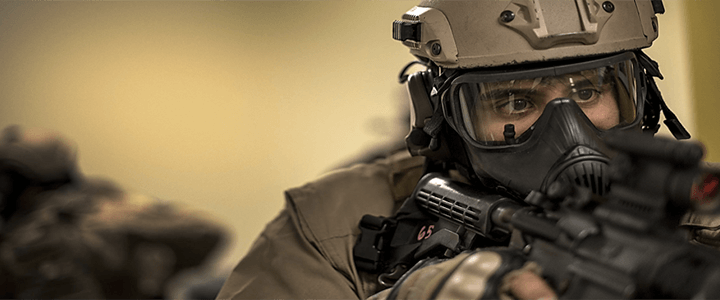What intelligence did President Trump share with French President Emmanuel Macron? Whatever it was, it seems to have Macron rattled, and it’s put the Iran nuclear deal in greater jeopardy. Sources say the president is leaning toward not certifying Iran’s compliance with the deal as is required every 90 days. Other sources said the president wanted to modify but not scrap the deal.
Regardless of his decision today, Iran will continue to be a destabilizing influence in the Middle East, and the west ought not to tolerate that now any more than we did before Iran began pursuing a nuclear weapon.
nuke deal no longer enough to contain iran
Macron had repeatedly asked Trump not to abandon the “Joint Comprehensive Plan of Action” struck in late 2015 between Iran and a group of nations called the P5+1: the U.S., Great Britain, France, China, and Russia (the world’s five major nuclear powers) plus Germany. But by 8 pm, even as the European Union was arguing there was no need to abandon the deal, AFP, the Agence France Presse news agency, tweeted “France’s Macron says Iran nuclear deal no longer enough to safeguard against growing power of Tehran in the Middle East.”
The international political consensus is that Iran has continued to honor the deal that allows it to maintain a peaceful nuclear power program but not to develop nuclear weapons, in exchange for the relaxing of the economic sanctions that had been isolating Iran from much of the rest of the world. Many in the U.S., including inside the administration, are not convinced.
In a press conference late Wednesday evening, Macron elaborated. He still believes the deal needs to remain, but he believes that Iran’s actions in the region warrant additional measures. “Let’s be honest, the tensions are on the rise,” Macron said. “Look at the activities of Hezbollah and Iran’s pressure on Syria. We need a clear framework to be able to reassure regional countries and the United States.”
from nuclear power to region destabilization
Macron’s support for tougher measures against Iran is certainly welcome, since France has not always been particularly on the same page with the U.S. when it comes to Iran. And he’s right to point out that while Tehran may be abiding by the nuclear deal, they have not backed off their other destabilizing activities.
The first shots in the Global War on Terror (I’m not giving up GWOT even if the government has abandoned the term) weren’t fired on Sept. 11, 2001. They weren’t fired with the bombing of the USS Cole or the 1993 World Trade Center bombings. They were fired on Nov. 4, 1979, when Macron was two years old. Iranian students stormed the U.S. Embassy in Teheran and thumbed their noses at the standards of international diplomatic conduct by holding U.S. diplomats hostage in a standoff that lasted 444 days. The leader of the Iranian Revolution, Ayatollah Ruhollah Khomeini, spent part of his exile in Paris.
Iran has been the biggest backer, financially and spiritually, of Hezbollah, the Lebanese political-party-slash-terrorist-organization which it helped establish following Israel’s 1982 invasion of Lebanon. Over the years, Hezbollah has refused to back off its stated goal of the elimination of Israel. It (and its subunit Islamic Jihad) has been responsible for some of the worst terrorist actions in the region, including the 1983 bombing of the Marine Barracks in Beirut, one of the first instances of a suicide vehicle borne improvised explosive device, and the kidnappings of numerous Americans in the region.
And Iran was responsible for supplying Iraqi insurgents with explosively formed penetrators. The EFP was the most deadly, and difficult to counter, IED the U.S. encountered during Operation Iraqi Freedom.
Supporters of relaxing sanctions should recall this history. Iran has cleverly shifted the limits of what is acceptable. By undertaking a nuclear weapons program, which it knew to be unacceptable to the rest of the world, it gave itself more freedom to increase the other destabilizing activities that had made it the object of so much scorn previously. By redefining the upper limit of bad behavior, the previous limit has almost become acceptable again.
Thank you, President Macron, for reminding the world that Iran is still not going to play nicely with the other kids in the sandbox.



